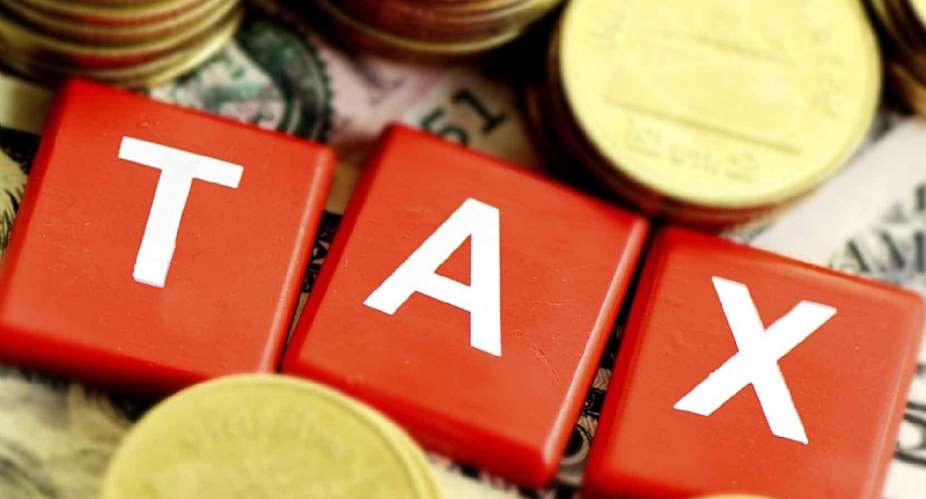To go or not to go, the government has finally opened discussions with the Bretton-Woods institution on the current state of the economy. Not to demonize engagements with IMF but it is a reminder that a fraction of the gross domestic product (GDP) will be used for interest payments — which is currently about 80 percent.
This is the 17th time Ghana is going to the IMF. Moreover all 17 trips have differing factor causes. Even though this latest engagement is linked to the Covid-19 pandemic and the Russia-Ukraine war, had policymakers played their role in exhibiting discipline in executing policies and establishing institutions — there would be a fiscal haven for the economy when hit by the global economic crisis.
To make things better, there is also the need for discussions on the laid down measures to shore up revenues because the IMF financial bailout is not to add to revenue mobilization — it is a credit facility (loan) for short-term macroeconomic stability which attracts interest payments. The bill for property rates has “dilly-dallied” in parliament for God-knows-when, whiles the economy loses billions of cedis in revenue. This is not to witch-hunt investors in the real estate industry, but a simple question asked here is, “observing the spiraling investment in real estate in Ghana, how much accrues to the economy as revenues?”
Ghana property center, a real estate website lists the average price of the most expensive houses in the Greater Accra Region at GH₵1,330,000, GH₵310,000 in the Central Region, and GH₵290,000 in the Ashanti region respectively[1]. However, property rate contributes only 0.3 percent to GDP compared to the average of 1.8 percent in Organization for Economic Cooperation and Development (OECD) member countries. Taxes on properties in the UK form a whopping 4.2 percent of GDP and 3 percent of GDP in the United States.
Moreover, the provisional results of the 2021 Population and Housing Census (PHC) from the Ghana Statistical Service (GSS) indicate that there are about 10.7 million structures in Ghana. It is important to also note that a fraction of the structures is for business purposes and not only for home ownership, which attracts different property rates depending on the use-value of the structure.
For simplicity and other things being equal, if a flat rate of GH₵100.00 is charged monthly on every property for the 10.7 million structures, GH₵1.07 billion will be generated monthly and GH₵12.84 billion yearly for property rates only. This is more than twice the value projected for the electronic transaction levy (e-levy).
The GhanaPostGPS address system has eased the tedious task of identifying structures and their owners in Ghana. Much can be leveraged from this groundbreaking address system while using mobile money services and the ghana.gov platform for the payment of property rates, eliminating human interference to the least possible to help minimize corruption in the collection of property rates.
It is safe to say that with property rates efficiently implemented, the economy has a potential revenue source that can be used as leverage to make the economy more robust to withstand global economic shocks, accelerate economic development, and efficiently execute flagship programmes that will contribute to economic wellbeing. But it rests on the Ministry of Finance, Ghana Revenue Authority, and all stakeholders to approach this course with discipline, transparency, compliance, and accountability.
[1] Ghana Property Centre — Average Property Prices in Ghana (Jun 2022 Reports) - Ghana Property Centre (GPC)





 Chief arrested for killing soldier at Kasoa over land
Chief arrested for killing soldier at Kasoa over land
 GAF probes soldier’s murder at Kasoa Millenium City
GAF probes soldier’s murder at Kasoa Millenium City
 Ghana steps up effort to pass new Labour law
Ghana steps up effort to pass new Labour law
 AG advises EOCO against money laundering probe into Cecilia Abena Dapaah’s affai...
AG advises EOCO against money laundering probe into Cecilia Abena Dapaah’s affai...
 May Day: I'll prioritise welfare of workers, abolish compulsory retirement age a...
May Day: I'll prioritise welfare of workers, abolish compulsory retirement age a...
 V/R: Adaklu-Tevikpo murder suspect arrested from hideout
V/R: Adaklu-Tevikpo murder suspect arrested from hideout
 Kasoa: Soldier killed by alleged land guards over land dispute — GAF
Kasoa: Soldier killed by alleged land guards over land dispute — GAF
 Fatal shooting of soldier happened at Gomoa East not Kasoa; stop tarnishing our ...
Fatal shooting of soldier happened at Gomoa East not Kasoa; stop tarnishing our ...
 ‘We condemn unprovoked attack in no uncertain terms’ — GAF on fatal shooting of ...
‘We condemn unprovoked attack in no uncertain terms’ — GAF on fatal shooting of ...
 Ghanaians urged to ensure violence free elections on December 7
Ghanaians urged to ensure violence free elections on December 7
